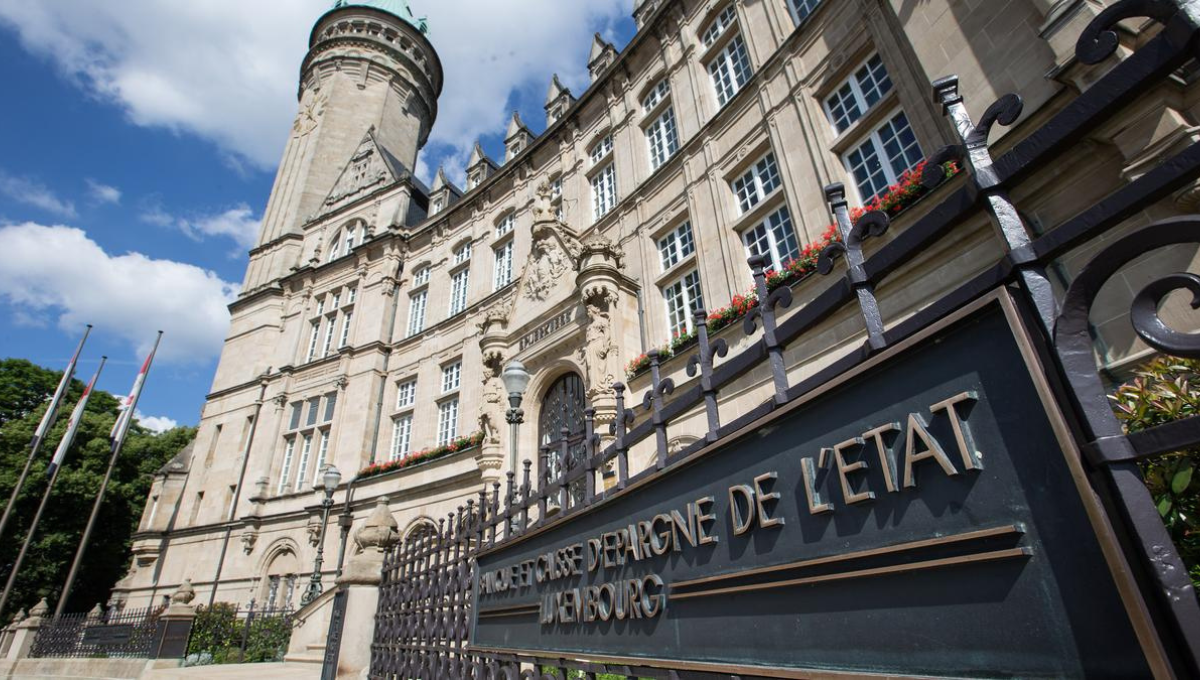Luxembourg’s state-owned bank Spuerkeess (Banque et Caisse d’Épargne de l’État) has been fined nearly €5 million by the country’s financial sector watchdog, the Commission de Surveillance du Secteur Financier (CSSF), for significant failings in its anti-money laundering (AML) and counter-terrorist financing (CTF) controls. This administrative sanction was announced on July 30, 2025, following an extensive investigation triggered by the high-profile Caritas Luxembourg embezzlement scandal.
Background and Context of the Fine
The fine imposed on Spuerkeess amounts to €4.96 million and relates to documented weaknesses identified in the bank’s retrospective monitoring of certain transactions, which created structural gaps in the detection and prevention of money laundering and terrorist financing risks. The CSSF’s probe focused on assessing the bank’s compliance with its professional obligations under AML/CTF laws. Specifically, the failings emerged in the context of transactions linked to Caritas Luxembourg, a charity organization that was the target of a major financial fraud incident marked by the misappropriation of substantial funds.
Importantly, the CSSF clarified that while its investigation found deficiencies in Spuerkeess’s AML framework, it was not tasked with determining the bank’s direct liability for the fraud committed against Caritas nor with establishing if an ideal monitoring system would have fully prevented the incident. The regulator emphasized its role is supervisory rather than judicial in that regard.
Official Statements from Involved Parties
Spuerkeess acknowledged the CSSF’s decision and the fine, noting the €4.96 million penalty represents less than 0.5% of the bank’s annual turnover. The bank stated it had already taken proactive steps to strengthen its transaction monitoring systems before the regulator’s findings were made public. This includes enhancements designed to prevent the recurrence of similar AML shortcomings and to ensure stricter compliance with regulatory AML/CTF obligations going forward.
The Luxembourg State Treasury, overseeing Spuerkeess as a systemic banking institution, emphasized its commitment to professional responsibility and robust compliance. In an official response, the Treasury asserted that the bank “fully upholds its professional responsibilities” and maintains a “robust compliance system to ensure exemplary management in the interest of our customers, counterparties, and the broader financial market.” This statement underlined the systemic importance of Spuerkeess and its ongoing dedication to upholding the integrity of Luxembourg’s financial sector.
Regulatory and Historical Context
This isn’t the first regulatory sanction faced by Spuerkeess in recent years. In November 2024, the European Central Bank (ECB) imposed administrative penalties totaling approximately €1.7 million on Spuerkeess for errors in reporting risk-weighted assets related to market and credit risk during the period 2018 to 2022. Although these issues concerned capital calculations and risk exposures, the ECB confirmed that the bank’s stability and customer deposits were never at risk.
The €5 million fine for AML failings marks a significant development not only for Spuerkeess but also for Luxembourg’s financial regulatory environment, reflecting the increasing scrutiny on anti-money laundering controls across the European banking sector. This follows a broader trend of large AML fines globally, such as BNP Paribas’ $8.9 billion fine in 2014 and substantial penalties against other European banks for AML breaches, emphasizing regulators’ zero-tolerance stance on compliance failures.
Significance and Impact
Spuerkeess, as Luxembourg’s systemic state bank, plays a key role in the country’s financial ecosystem, particularly in public finance and retail banking. The recent sanction highlights the challenges even well-established banks face in managing complex AML frameworks, especially amid sophisticated fraud schemes like that seen in the Caritas case.
The enforcement action serves as a cautionary tale, emphasizing the critical importance of continuous and effective monitoring mechanisms to detect and deter financial crime. For Spuerkeess, the fine not only represents a financial penalty but also a reputational challenge to demonstrate renewed and heightened commitment to compliance excellence.
Additional Developments
Separately, the Caritas scandal and related investigations have drawn broader attention to AML vulnerabilities within Luxembourg’s financial sector, prompting calls for enhanced regulatory vigilance and reforms. The CSSF’s sanction against Spuerkeess is a tangible manifestation of regulatory authority actively responding to such challenges.
The bank’s response to early adopt corrective measures can be seen as a constructive step towards mitigating future risks. Nevertheless, market and public scrutiny will likely remain heightened on Spuerkeess as it fortifies its internal controls and rebuilding confidence among stakeholders.
Summary
- On July 30, 2025, Luxembourg’s CSSF fined state bank Spuerkeess €4.96 million for anti-money laundering and counter-terrorist financing failings identified in connection with the Caritas Luxembourg financial fraud case.
- The investigation revealed structural weaknesses in the bank’s retrospective transaction monitoring but did not assign liability for the fraud itself to the bank.
- Spuerkeess accepted the fine, noting it represents less than 0.5% of its turnover, and confirmed measures had been taken to enhance AML controls prior to the regulator’s report publication.
- The Luxembourg State Treasury emphasized the bank’s professional responsibility and commitment to compliance as a systemic financial institution.
- The fine is part of ongoing scrutiny of Luxembourg’s banking sector, following previous ECB fines for reporting errors in 2024 and in line with global trends of increased AML enforcement.
- This enforcement action underscores the vital importance of robust AML frameworks to safeguard the financial system from abuse and maintain public trust.
This development will be closely watched by industry observers, regulators, and market participants as Luxembourg continues to strengthen its position in the global fight against financial crime.


